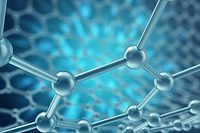New, Three-Dimensional Formable Hardcoat Film
Bayer MaterialScience AG has developed a new polycarbonate film called Makrofol® TP 278, which, despite its scratchproof coating, can be shaped three dimensionally.

Bayer MaterialScience AG has developed a new polycarbonate film called Makrofol® TP 278, which, despite its scratchproof coating, can be shaped three dimensionally. The film produces 3D component surfaces with a deep-gloss finish (piano effect) and outstanding abrasion resistance. "It is the first member of the new Makrofol HF product family of scratchproof-coated, formable films. This is our response to the recent, more stringent specifications concerning the scratch resistance of printed and decorated 3D film components used, for example, in car interiors, household appliances and IT equipment," says Dirk W. Pophusen, head of Business Development in the Functional Films section at Bayer MaterialScience.
The scratch-resistant coating of decorated 3D film components after production involves a considerable amount of work and usually accounts for a major proportion of the component costs. For example, a separate coating line is usually needed, involving enormous investment and maintenance costs. It is far easier to start with plastic films that have already been given a scratchproof coating and to back-print, form, trim and, if necessary, back-inject them with a thermoplastic by the film insert molding (FIM) process. The problem was that, before now, there were virtually no scratch-resistant coatings available that could withstand the forming stage without suffering damage. "We have now solved this problem with our DualCure scratchproof coatings. These are pre-cured coatings, which can be formed together with the film and are then finally cured using conventional UV lamps," explains Pophusen.
Makrofol TP 278 owes its excellent forming properties to a DualCure coating of this kind. It means that the film can be used for producing narrow radii and a high depth of draw. Films can be cold formed using high pressure forming (HPF) and also thermoformed. The cured film has excellent abrasion and scratch resistance. For example, the film achieves a "1H" rating in the pencil hardness test, ISO 15184, 500 g. Another of the film's strengths is its high resistance to everyday chemicals such as grease, fat and cleaning agents. Potential applications include housings for all kinds of consumer electronics, high-gloss cell phone housings and keypads, control elements of washing machines and dishwashers, and decorative 3D facings for car interiors such as the trim around the center console.
Other types will be added to the new Makrofol HF product family in close cooperation with customers. "We always take account of specific market requirements so that we can offer solutions that are optimized for the particular application," explains Pophusen. There are plans, for example, to develop formable scratch-resistant films for car interiors that produce a matte finish. Another target is to produce UV-stable hardcoat films for large add-on bodywork parts. For more information, visit http://www.bayermaterialscience.com/.

Bayer MaterialScience AG has developed a new polycarbonate film called Makrofol® TP 278, which, despite its scratchproof coating, can be shaped three dimensionally. The film produces 3D component surfaces with a deep-gloss finish (piano effect) and outstanding abrasion resistance. "It is the first member of the new Makrofol HF product family of scratchproof-coated, formable films. This is our response to the recent, more stringent specifications concerning the scratch resistance of printed and decorated 3D film components used, for example, in car interiors, household appliances and IT equipment," says Dirk W. Pophusen, head of Business Development in the Functional Films section at Bayer MaterialScience.
The scratch-resistant coating of decorated 3D film components after production involves a considerable amount of work and usually accounts for a major proportion of the component costs. For example, a separate coating line is usually needed, involving enormous investment and maintenance costs. It is far easier to start with plastic films that have already been given a scratchproof coating and to back-print, form, trim and, if necessary, back-inject them with a thermoplastic by the film insert molding (FIM) process. The problem was that, before now, there were virtually no scratch-resistant coatings available that could withstand the forming stage without suffering damage. "We have now solved this problem with our DualCure scratchproof coatings. These are pre-cured coatings, which can be formed together with the film and are then finally cured using conventional UV lamps," explains Pophusen.
Makrofol TP 278 owes its excellent forming properties to a DualCure coating of this kind. It means that the film can be used for producing narrow radii and a high depth of draw. Films can be cold formed using high pressure forming (HPF) and also thermoformed. The cured film has excellent abrasion and scratch resistance. For example, the film achieves a "1H" rating in the pencil hardness test, ISO 15184, 500 g. Another of the film's strengths is its high resistance to everyday chemicals such as grease, fat and cleaning agents. Potential applications include housings for all kinds of consumer electronics, high-gloss cell phone housings and keypads, control elements of washing machines and dishwashers, and decorative 3D facings for car interiors such as the trim around the center console.
Other types will be added to the new Makrofol HF product family in close cooperation with customers. "We always take account of specific market requirements so that we can offer solutions that are optimized for the particular application," explains Pophusen. There are plans, for example, to develop formable scratch-resistant films for car interiors that produce a matte finish. Another target is to produce UV-stable hardcoat films for large add-on bodywork parts. For more information, visit http://www.bayermaterialscience.com/.
Looking for a reprint of this article?
From high-res PDFs to custom plaques, order your copy today!






